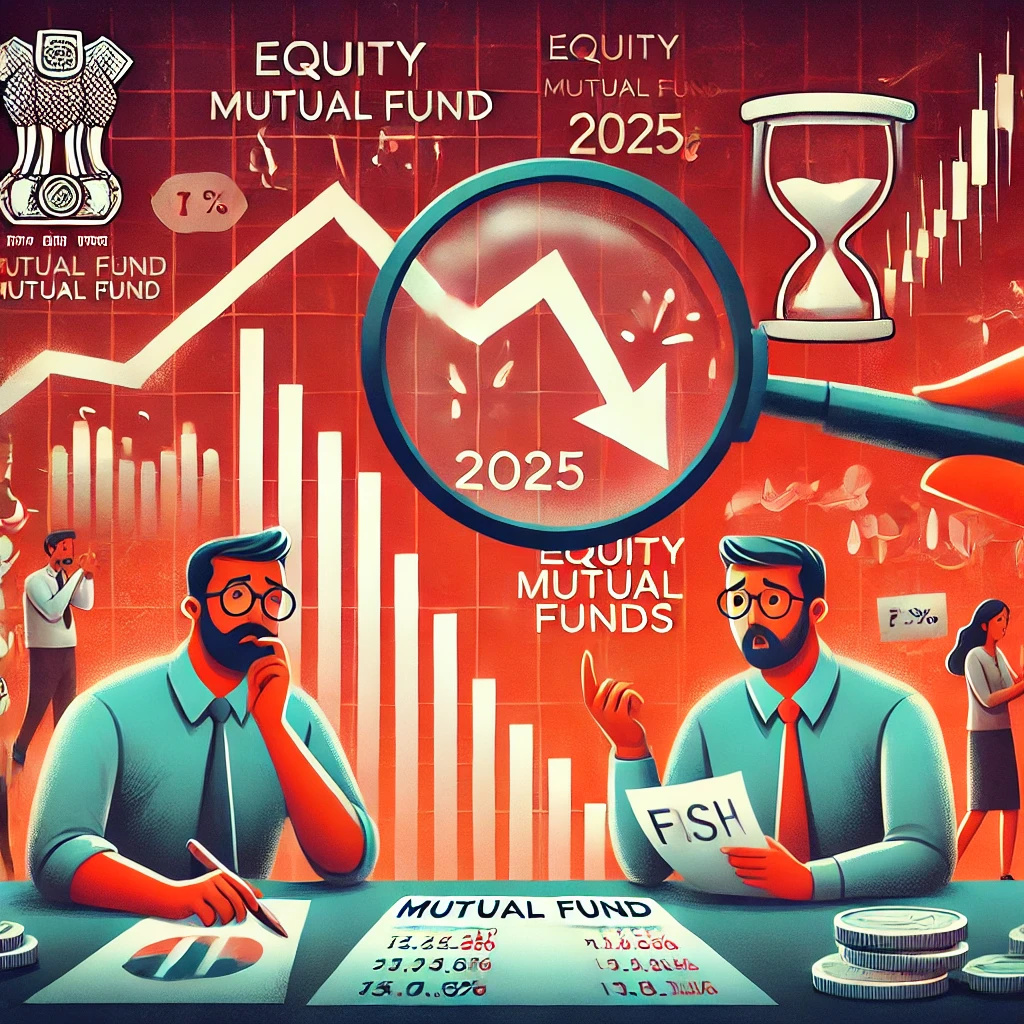
📉 Are your mutual fund investments safe? Recent data shows that over 15 equity mutual funds have lost more than 15% in just six months—here’s what you need to know!
In the ever-changing landscape of financial markets, mutual funds have long been a popular investment vehicle for those seeking to grow their wealth. However, recent data has revealed a concerning trend that’s caught the attention of investors and market analysts alike. Over 15 equity mutual funds have experienced losses exceeding 15% in just six months, leaving many wondering about the stability of their portfolios and the future of their investments.
📊 The Unexpected Downturn: A Closer Look at Equity Mutual Fund Performance
The mutual fund industry has been hit with a surprising setback as numerous equity funds have reported significant losses. This development has raised concerns and sparked discussions about the factors contributing to this decline and its implications for investors.
📉 Understanding the Scope of the Losses
The extent of the losses is alarming, with some funds experiencing a decline of nearly 18% over a short six-month period. These losses have impacted various types of equity funds, including value funds, flexi-cap strategies, and tax-saving ELSS funds.
🔻 Key Funds Affected
| Fund Name | 6-Month Loss (%) |
|---|---|
| Quant Value Fund | -17.82% |
| Quant Flexi Cap Fund | -17.69% |
| Samco Flexi Cap Fund | -17.65% |
| Motilal Oswal Focused Fund | -17.58% |
| Samco ELSS Tax Saver Fund | -17.52% |
These figures represent a significant erosion of wealth for investors who had placed their trust in these funds, expecting growth and stability.
📌 Read More: Top Short-Term Mutual Funds for Smart Investing in 2025
🔎 Analyzing the Causes: What’s Behind the Downturn?
Several factors have contributed to this unexpected decline in equity mutual funds:
📉 Market Volatility
The stock market has faced increased turbulence due to global and domestic economic factors, impacting equity-based investments.
🚨 Sector-Specific Challenges
Certain sectors of the economy have struggled, affecting the performance of funds heavily invested in those areas.
🏦 Fund Management Strategies
Investment strategies play a crucial role—some funds may not have adapted well to changing market conditions.
📊 Economic Indicators
Factors like inflation, interest rates, and GDP growth influence investor sentiment and market trends.
💡 The Silver Lining: Funds Bucking the Trend
Not all funds have suffered—some have delivered positive returns, proving their resilience even in tough market conditions.
🏆 Top Performers Amidst the Downturn
| Fund Name | 6-Month Gain (%) |
|---|---|
| Motilal Oswal Multi Cap Fund | +6.67% |
| Bandhan Focused Equity Fund | Positive returns (exact % not specified) |
📌 Alternative Investment Strategies: Micro-Investments in India
🤔 Implications for Investors: What Should You Do?
🔍 Reassess Your Portfolio
Now is an excellent time to review your investment portfolio. Consider:
- Evaluate the diversity of your investments.
- Ensure your asset allocation aligns with your risk tolerance.
- Assess long-term performance, not just recent declines.
📊 Understand Your Risk Tolerance
Market fluctuations are normal. Ensure that your investment strategy matches your comfort level with risk.
⏳ Consider Long-Term Performance
While short-term losses are concerning, funds with a strong long-term track record may recover over time.
📢 Seek Professional Advice
If you’re unsure how to proceed, consult a financial advisor for personalized guidance.
🌍 The Importance of Diversification
One key lesson from this downturn is the importance of diversification. A well-balanced portfolio can help mitigate risks.
✅ Strategies for Effective Diversification
- Mix Asset Classes: Balance stocks, bonds, and other investments.
- Sector Variety: Invest in different industries to reduce exposure.
- Global Investments: Explore international markets to hedge against domestic fluctuations.
- Investment Styles: Blend growth, value, and income-focused investments.
💡 Pro Tip: Successful investing requires a long-term perspective. Avoid hasty decisions based on short-term fluctuations—regularly review and adjust your investment strategy in line with your financial goals.
❓ FAQ: Addressing Common Concerns About Equity Mutual Fund Performance
-
Should I exit my underperforming equity mutual funds immediately?
🔹 Not necessarily. Short-term underperformance doesn’t always mean long-term failure. Review the fund’s overall track record before deciding. -
How often should I review my mutual fund portfolio?
🔹 While it’s good to stay informed, a quarterly or semi-annual review is generally sufficient. -
Are there signs that indicate I should exit a fund?
🔹 Yes. Consistent underperformance, a change in fund management, or a shift in investment strategy that no longer aligns with your goals could be reasons to reconsider. -
How important is the expense ratio when choosing mutual funds?
🔹 The expense ratio affects your returns, but it shouldn’t be the only factor. Also consider the fund’s historical performance and risk measures. -
Can past performance guarantee future results?
🔹 No. Past performance is not a guarantee of future returns. Consider current market conditions, fund strategies, and personal financial goals when investing.